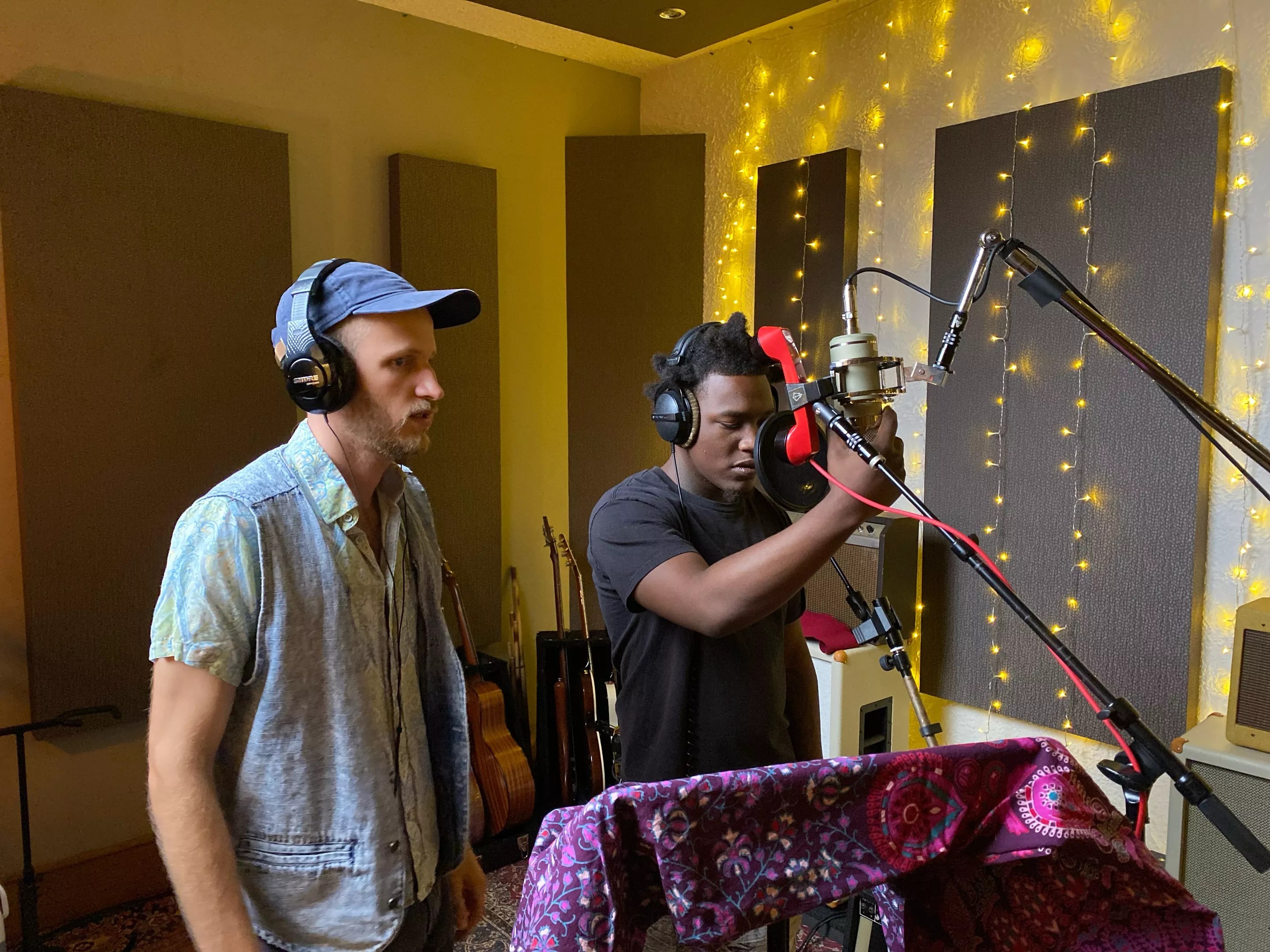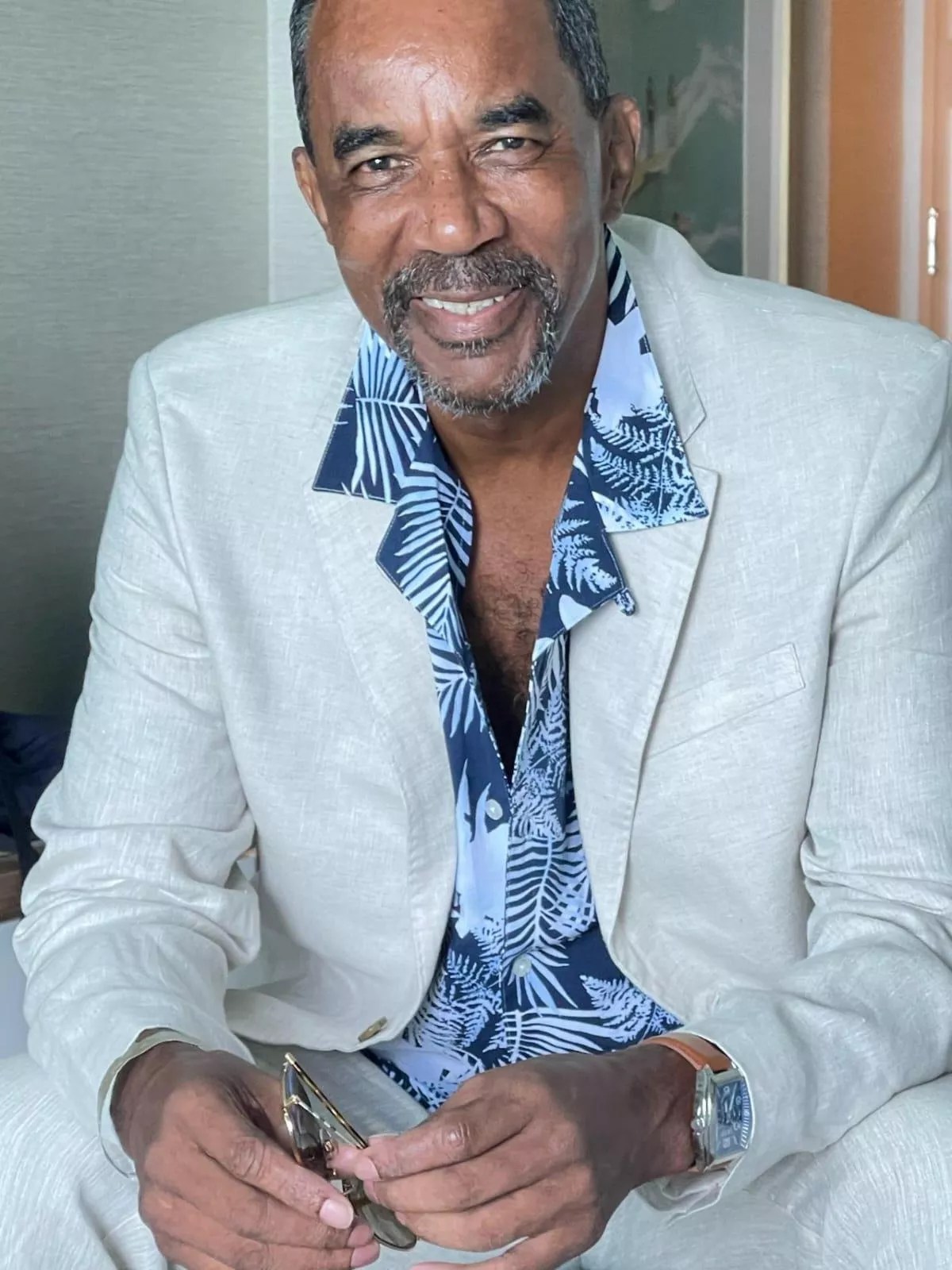
Photo by Noam Brown

Audio By Carbonatix
Before it was an album, it was a nightly interruption. Gary Field, who was incarcerated in the Martin Correctional Institution in Indiantown, was trying to get some sleep while awaiting trial, no easy task in a place where walls are thin, concrete echoes are loud, and impromptu rap battles break out at 1 a.m.

Gary Field is a writer who is incarcerated in the Florida state prison system.
Community Hotline for Incarcerated People (CHIP) photo
“I didn’t want to hear it,” Field recalls in a deep, radio-worthy voice during a call from jail with New Times. “People were banging on their chests, on their bars, having these Dirty South-style rap sessions, and I couldn’t stop it. But after a while, I realized: there’s real talent in here. It just didn’t have a platform.”
That realization sparked Bending the Bars, a collaborative hip-hop album recorded by currently and formerly incarcerated artists inside one of the nation’s most overcrowded state correctional systems. Released earlier this month on FREER Music, the album compiles voices from across Florida’s carceral system: people with no access to recording studios or even reliable phone lines, who managed to capture beats, verses, and raw testimony in spite of the institutional barriers that exist to silence them.
Some of the tracks were recorded using two jail phones simultaneously: one pressed to the artist’s ear to stream a beat, the other used as a microphone. Others were captured from voice notes submitted to the Community Hotline for Incarcerated People (CHIP), a grassroots organization that began collecting stories, and eventually, demos, during the pandemic.
Field, who is currently serving a 15-year sentence for attempted murder, teamed with CHIP cofounders Nikki Morse, a media studies scholar; and Noam Brown, a children’s music specialist, to turn those scraps of sound into a full-length project. Together, they assembled a network of outside producers who helped build arrangements while letting the artists lead.
Morse says they initially imagined something small – maybe a six-month project – and budgeted $3,000 or so. Three years later, Bending the Bars had grown into a 16-track album, with early singles already circulating on major platforms. A documentary about the project is scheduled for 2026.
But Field’s role in the album was more than conceptual. At 67, he is a prolific writer with more than 1,500 pages published on the Massachusetts Institute of Technology’s Between the Bars platform. He studied theology at Columbia University and earned a master’s degree from Gulf Coast Bible College. At Martin Correctional, Field is a respected figure; holding the position of houseman, he’s tasked with maintaining and repairing facilities, assisting with housekeeping duties, and providing general support across the unit. The role gave him access and mobility, which he used to navigate the daily choreography required to make the project work: persuading gang members to share phones, securing cooperation between rivals, and bridging communication between different units. “It became something bigger than a project. It brought people together who wouldn’t normally even talk,” he says.
That unity is audible in the music. Artists from opposing crews came together across turf lines to collaborate. The tracks mix personal narratives, love songs, and political critiques with verses that echo the realities of life inside. There’s a track about PTSD, another about trans joy. Some songs are hard, some intimate, some experimental. All of them are grounded in lived experience.
“Hip-hop has always been a reflection of the community,” Field says. “These guys weren’t writing like they’d been to the Iowa Writers’ Workshop. They were writing what they know. And what they know is struggle, loss, survival.”
“These guys weren’t writing like they’d been to the Iowa Writers’ Workshop. They were writing what they know.”
Morse echoes the sentiment. “There’s no programming in Broward jails. No radios. People rap to express themselves, to entertain each other, to stay sane. For many of them, this album was the first time they ever got paid for their music. For some, it was the first time anyone outside ever listened.”
Artists retain full rights to their work and receive a stipend, as well as royalty-sharing agreements far more equitable than standard industry contracts. Even more meaningful was the sense of agency. As Field notes, “This isn’t a label project. This is a nonprofit-led movement to get people heard.”
The album’s final track, “Tearing Down Walls and Building Bridges,” features Field himself and captures the deeper aim of the project. “We’re not just trying to make noise,” he says. “We’re trying to show what’s possible when you stop judging people by their worst mistake and start seeing them as human beings.”
With more than 3,000 correctional facilities scattered across the U.S., the team behind Bending the Bars hopes the album can become a model for how to build creative infrastructure inside the walls. An educational partnership with Edovo, a tablet-based learning system used by more than a million incarcerated people, is already in the works.
“We’ve already succeeded,” Morse says. “People made music in a place where music wasn’t supposed to exist. Now we just want others to hear it.”